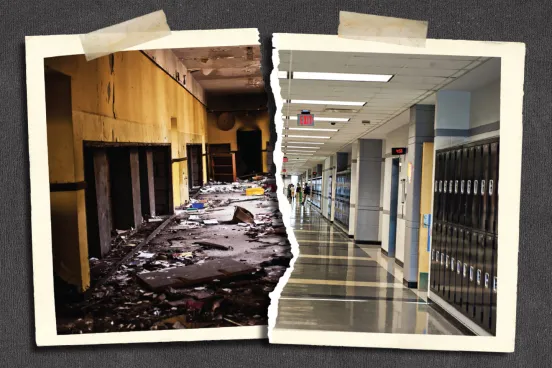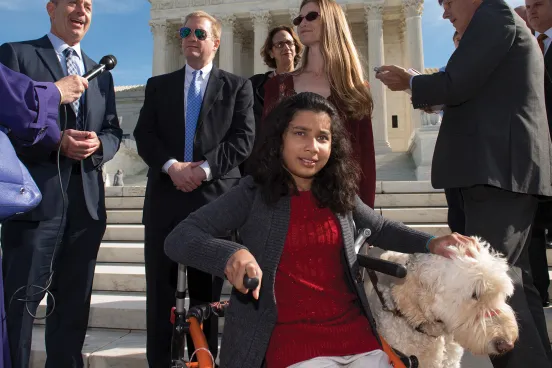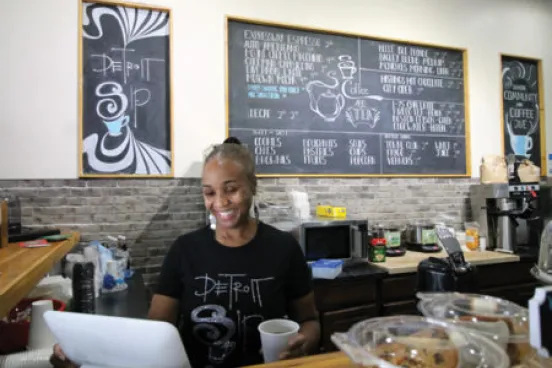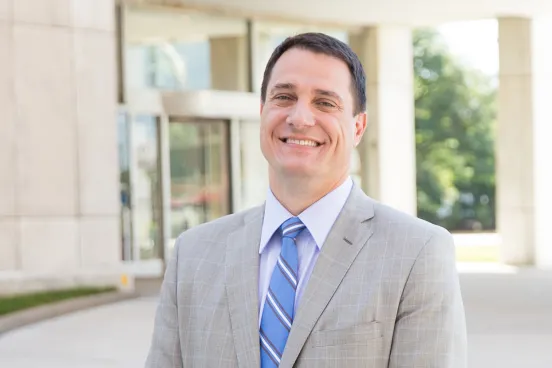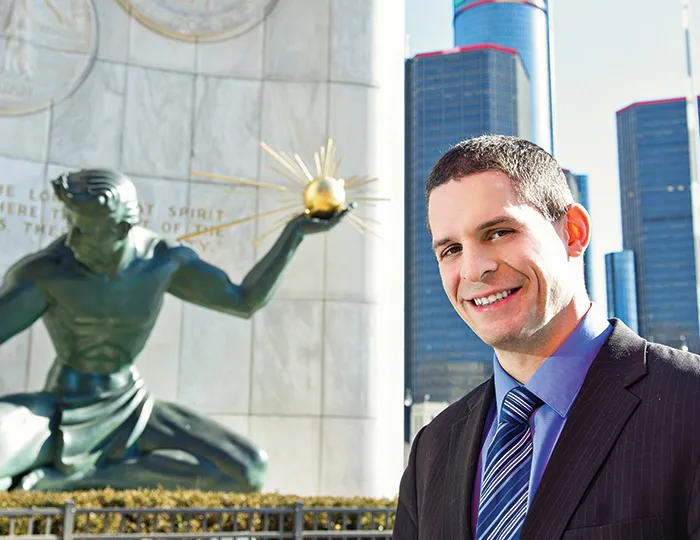
As senior adviser and counsel to the mayor of Detroit, Eli Savit, ’10, knows that the legal challenges facing the city are vast. So vast, in fact, that there simply is no way for staffers to explore affirmative litigation opportunities. Such public interest lawsuits filed on behalf of the city could address topics like consumer protection, environmental justice, housing, and nuisance abatement.
So Savit—with the support of his boss, Mayor Mike Duggan, ’83—decided to enlist some of the emerging legal experts at Michigan Law. The idea has evolved into the Detroit Litigation Advocacy Workshop, or DLAW, which was offered for the first time this semester.
Each of the 12 students in the research-oriented class was responsible for exploring litigation options available to the city and producing a white paper about how to tackle those opportunities. Yale Law School and the City of San Francisco have a similar partnership, which has led to judgments that have brought money into the city’s coffers, Savit notes.
“I thought it would be great to bring to bear the talents, ingenuity, and creativity of Michigan Law students to explore the legal hooks that the City of Detroit might have to go to court and achieve positive outcomes for its citizens. We are committed to using every possible lever to create a better life for the citizens of Detroit,” says Savit, who co-taught the course as an adjunct professor with Professor Julian Davis Mortenson.
The hope of improving the lives of Detroiters drew 2L Adam Kleven to the class. “I think it’s really important to be part of the city’s comeback and to have a meaningful impact on the citizens of Detroit,” says Kleven, a Michigan native who hopes to stay in southeastern Michigan after law school. Kleven researched possible litigation related to the city’s blight problem. “The collaboration and creative thinking involved with trying to get affirmative litigation off the ground was my favorite aspect of the class, and the work definitely improved my legal research skills,” he says.
Mortenson jumped at the chance to get involved with teaching the course. “I’ve maintained an active litigation practice throughout most of my career at Michigan, and my research and doctrinal teaching have always been closely connected to that practical experience,” Mortenson says. “It was hard to resist the chance to combine all three in one project, particularly in the context of government practice. Government work is a crucial form of public service and is closely connected to one of my favorite things about working at a state institution: the feeling of genuine public mission in our work as faculty members.”
The Law School has been increasing the depth and breadth of its connections with Detroit in recent years. The student-led organization JDs in the D (of which Kleven is co-president) sponsors activities throughout the academic year. In addition, the Law School has several clinics that serve clients from Detroit, and sponsors a revamped Service Day in which incoming students work solely with Detroit organizations.
“This is a terrific opportunity to deepen that connection. Detroit is a vibrant place, rich in history and opportunity, facing a future full of both challenge and promise,” Mortenson says. “Our students and faculty have so much to learn about the challenges of governing in one of the great cities of America. In return, we hope to offer meaningful contributions to the city government’s work.”
The course also is part of the Law School’s continuing efforts to expose students to real-world lawyering. In this instance, they learn while also, possibly, assisting with the turnaround of a large city. “It doesn’t get any more real than this,” Savit says.


